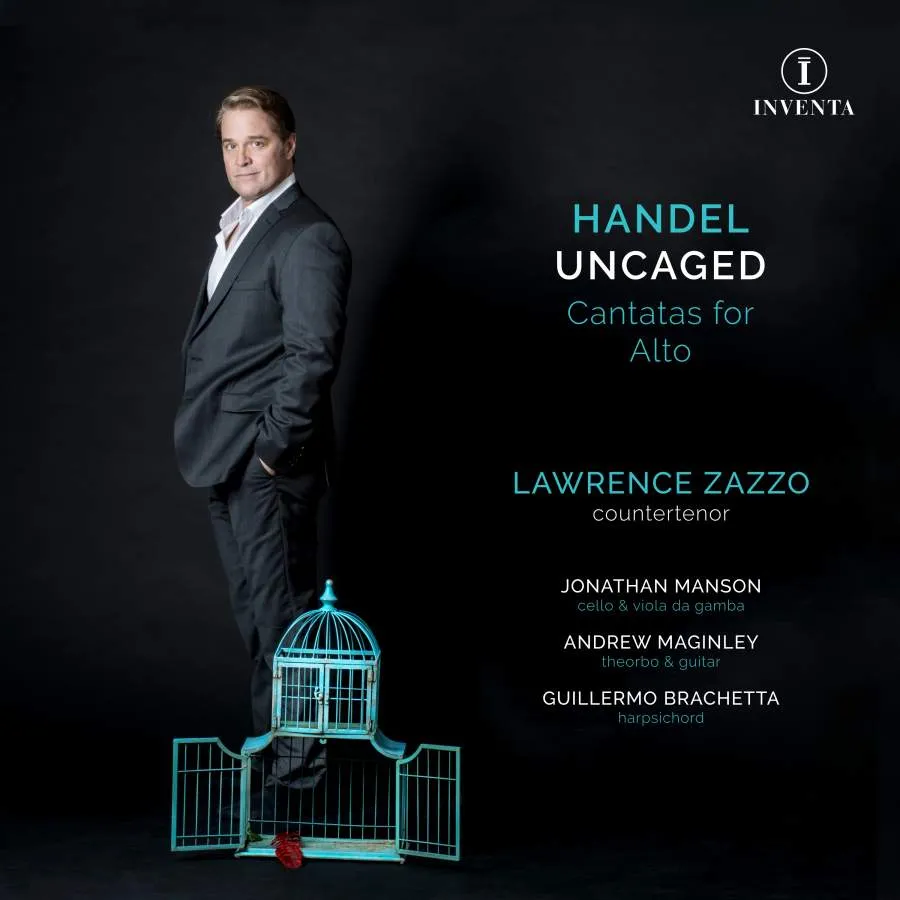
Handel Handel Uncaged – Cantatas for Alto; Keyboard Suite in F, HWV 427 – excerpt; Sonatina in G; Sonata in G minor, HWV 364b – Larghetto Lawrence Zazzo (countertenor), Jonathan Manson (cello, viola da gamba), Andrew Maginley (theorbo, guitar), Guillermo Brachetta (harpsichord) Inventa INV 1002 74:26 mins
Impressively, for this world-premiere recording, Lawrence Zazzo was the editor as well as the singer of music newly attributed to Handel. According to scholars, two of Handel’s short cantatas (HWV 176 and 175) belong to what is now believed to be the composer’s longest solo cantata, Amore uccellatore (Love’s Bird Hunter), whose last movements are transmitted in an anonymous manuscript held by the Fitzwilliam Museum. On this recording Zazzo ranges Amore uccellatore alongside Handel’s other bird-themed solo cantatas. In accordance with period practice, he occasionally has instrumentalists segue between cantatas, freeing them from recital-styled performance conventions and helping realise this project’s title, ‘Handel Uncaged’.
Himself a Handel opera star, Zazzo taps into the passion of these cantatas rather than their archness, and the gorgeous additions by cellist Jonathan Manson, theorbist Andrew Maginley and harpsichordist Guillermo Brachetta take their inspiration from word-meaning. The artists change approach for the frankly camp Amore uccellatore. In this, a male bird sings of being caged by Love’s handmaiden yet escaping; during the final chase he loses his ‘tail’, and hence his desirability. These verses, while perhaps titillating to Handel’s homosocial Roman patrons, are ham-fisted, and the composer’s musical wit in response is (necessarily) peppered with giggly silliness. The performers, shifting between exaggerated self-presentation and its mockery, here deftly juggle the work’s alternate modes.
At times Zazzo’s power and assertiveness as a singer overwhelm the cantatas. This, together with a bright acoustic and the cantatas’ conceits, keep any soft intimacy at bay. Zazzo has contributed hugely to Handel’s legacy, but look elsewhere for the still beauties of Handel’s cantata writing.
Berta Joncus